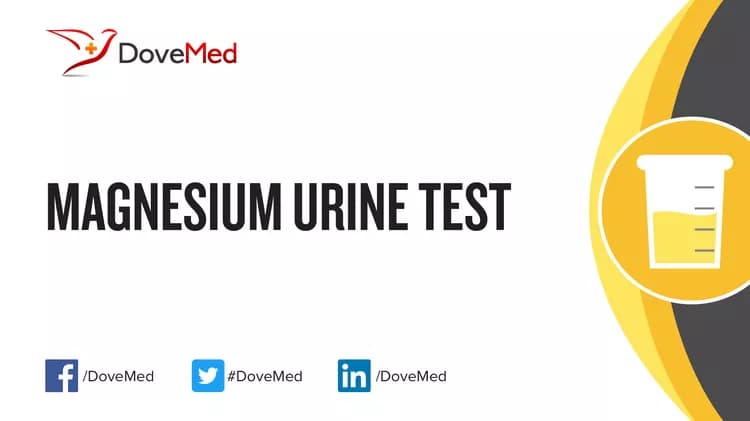What are other Names for this Test? (Equivalent Terms)
- Mg Urine Test
What is Magnesium Urine Test? (Background Information)
- Magnesium is an electrolyte found in green leafy vegetables, nuts, and seeds. Electrolytes are chemicals that dissociate in solution and conduct an electrical current. They are important to the body’s acid-base, electrical, and hydrostatic stability
- Magnesium is also necessary by a wide variety of enzymes in the body. Most of these require the use of adenosine triphosphate (ATP), one of the most important molecules in the body. Magnesium allows enzymes to interact with and synthesize ATP
- The Magnesium Urine Test helps determine the levels of magnesium in urine. It is used as a supplement to the magnesium blood test, to better understand the cause of magnesium deficiency and to guide treatment
- Additionally, individuals with low potassium and calcium levels in blood may be tested for magnesium levels, since the levels of potassium, calcium, and magnesium are linked to each other
What are the Clinical Indications for performing the Magnesium Urine Test?
Following are the clinical indications for performing the Magnesium Urine Test:
- Following up to tests indicating low levels of calcium and/or potassium
- Evaluating diabetes or kidney disorders
- Treatment for malnutrition, malabsorption, and alcoholism
- Fatigue
- Nausea
- Muscle cramps
- Heart irregularities
- Altered mental status; seizures
- Loss of appetite
How is the Specimen Collected for Magnesium Urine Test?
Following is the specimen collection process for Magnesium Urine Test:
Sample required: Urine
Process of obtaining a sample in adults: Urination into a sterile container over a 24-hour period or collection of a random urine sample.
Preparation required: It is recommended to drink 6 to 8 glasses of water or other fluids prior to the test.
What is the Significance of the Magnesium Urine Test Result?
The significance of a low value for the Magnesium Urine Test is explained:
- For a 24-hour urine sample, a low value for the test is a value less than 72 mg/day
- For a random urine sample, a low value is less than 18 mg/g magnesium for men, and less than 14 mg/g magnesium for women
- A low value for the test may point to a diagnosis of:
- Insufficient magnesium intake
- Extra renal loss
- Malnutrition
- Alcoholism
- Chronic diarrhea
- Hypoparathyroidism
- Long-term use of diuretics
The significance of a high value for the Magnesium Urine Test is explained:
- For a 24-hour urine sample, a high value for the test is a value greater than 120 mg/day
- For a random urine sample, a high value is greater than 110 mg/g magnesium for men and greater than 139 mg/g magnesium for women
- A high value for the Magnesium Urine Test may point to a diagnosis of:
- Kidney failure
- Hyperparathyroidism
- Hypothyroidism
- Kidney failure
- Addison disease
The laboratory test results are NOT to be interpreted as results of a "stand-alone" test. The test results have to be interpreted after correlating with suitable clinical findings and additional supplemental tests/information. Your healthcare providers will explain the meaning of your tests results, based on the overall clinical scenario.
Additional and Relevant Useful Information:
Certain medications that you may be currently taking may influence the outcome of the test. Hence, it is important to inform your healthcare provider of the complete list of medications (including any herbal supplements) you are currently taking. This will help the healthcare provider interpret your test results more accurately and avoid unnecessary chances of a misdiagnosis.
Please visit our Laboratory Procedures Center for more physician-approved health information:
http://www.dovemed.com/common-procedures/procedures-laboratory/
Related Articles
Test Your Knowledge
Asked by users
Related Centers
Related Specialties
Related Physicians
Related Procedures
Related Resources
Join DoveHubs
and connect with fellow professionals


0 Comments
Please log in to post a comment.